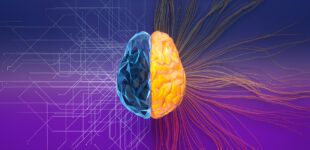December 23, 2021
We recently chatted with #IEEE Impact Creators Kyri Baker, Karen Panetta and Jay Shah to discuss some predictions for 2022 and beyond. Keep reading to see what these industry experts are forecasting for the future.
Q1: In your opinion, which industry will make the most significant #technology advances in 2022?
Baker: The electric vehicle industry is going through a revolution. I think we’re going to see a lot more manufacturers start going electric in the coming year.
Shah: The industry of healthcare research will make the most advances; using precision tools and AI-based smart devices.
Panetta: Healthcare and security using more artificial intelligence methods to deliver more robust systems. We will see chatbots become more useful and interactive too!
IEEE: With an increase in demand for artificial intelligence, we expect to see more advances for all industries that are utilizing AI technology. This could include healthcare, cybersecurity and more.
Q2: How would you like to see #technology used to improve quality of life in 2022?
Baker: It would be great to see more of the major advancements the tech industry is going through applied to climate change.
Shah: Mostly via personalized monitoring devices, applications, precision medicine and treatments and novel treatments to lesser-known diseases.
Panetta: In the healthcare field, I am super-excited about CRISPR/PRIME technologies and cancer ablation methods to conquer diseases that have traditionally had a devastating prognosis. (See IEEE Technical Field Award recipient Kathy Ferrara from Stanford’s work as an example).
IEEE: Technology has become deeply immersed in our daily lives. Thanks to smart devices, personalized healthcare and medicine are becoming more accessible. There is potential for new sustainability solutions and AI applications that can make a significant impact.
Q3:What technologies do you envision being the most impactful in terms of combating climate change?
Baker: AI and ML technologies can help revolutionize the way the electric power grid operates. Aging infrastructure and extreme weather events need to be addressed by installing and upgrading existing grid assets. We need to change the way we operate these assets under uncertainty.
Shah: I can see new analytical algorithms based on machine learning techniques that can gather insights from longitudinal data proving to be more useful as we gather data from more sophisticated methods.
Panetta: New imaging technologies coupled with AI are making it feasible to collect massive amounts of data that is digestible to any level of audience and help us determine how to address these challenges and make new environmental policies.
IEEE: By implementing AI and ML technologies, there are many opportunities for engineers to make an impact on #sustainability and renewable energy solutions. Smart grids and energy storage technologies could make an even bigger impact in 2022.
Q4: What technology should we be watching that is currently in its infancy, but that you predict will be impactful ten years from now?
Baker: If I knew the answer to this question I would be investing in that technology 😉 But these things are so hard to predict. One technology that could be either extremely integrated into society or have gone away completely ten years from now is cryptocurrency.
Shah: Augmented Reality complemented with Artificial Intelligence techniques; changing the way we use shopping and retail; contactless healthcare; the automotive industry; and also education and daily usage.
Panetta: Asteroid mining will expand our ability to do deeper space exploration and find new resources. E-skins will help us conquer different healthcare challenges. BioRobots are living cells that help us heal naturally, with less intrusive methods or negative side effects.
IEEE: There are many emerging technologies to keep your eye on in the coming years. There is potential for AR to be a main aspect of online shopping, or for telehealth to become the standard for preventative care. Only time can reveal what the next game-changer will be!
Q5: What are the biggest challenges facing enterprises from a cybersecurity perspective in 2022?
Panetta: The race between cyberattackers and cybersecurity experts who are trying to stop/detect attacks will continue. Both sides will use AI and ML. Many of the attacks will occur from backdoor gaps in our IoT devices’ security.
IEEE: Sourcing high-quality talent to implement cybersecurity protocols can be a challenge for organizations. Be open to hiring candidates working remotely, or with a STEM degree in another field who recently earned a certificate in cybersecurity.
Q6: Which industry do you think will be the most impacted by advances in AI and ML technologies?
Baker: Transportation, manufacturing and even the social media industry are likely to change rapidly.
Shah: Healthcare research and transportation.
Panetta: Healthcare and supply chain businesses. Many more services will be needed in telehealth and home delivery of products. We will see more efficiencies in product deliveries, recycling, robot automated deliveries and products that accurately monitor health conditions.
IEEE: The transportation industry could be deeply impacted by innovations in artificial intelligence and machine learning. Granting vehicles more autonomous capabilities could result in a boom in driverless transport in the coming years.
Q7: How do you think 5G will change our lives in the future that we have yet to experience today?
Shah: Since #5G will allow much faster data speeds than ever, there will be high usage of #AugmentedReality and #VirtualReality applications. Cloud-based processing, virtual education and more smart-home and #IoT tools.
IEEE: When 5G becomes more accessible to all regions, we could see a rise in online learning in developing areas. There is opportunity for mobile apps to include more robust features that can take advantage of the higher speed network.
Q8: How do you think smart cities will get smarter in 2022?
Baker: Smart and sustainable will be more hand-in-hand. “Smart” will start to transform from what we think of as the Internet of Things, smart devices, wireless connectivity, to something much more – making cities safer, cleaner and more sustainable for future generations.
IEEE: Smart capabilities means that processes will become more optimized and efficient. Energy output can be customized to the demands of a smart city. AI can help to control and regulate traffic. This can lead to a better quality of life overall.
Q9: What are the key ways that big data and AI and ML will advance personalized healthcare in the year ahead?
Shah: We will see an increased use of #wearables that can track and monitor vitals of the body, using algorithms and techniques built specifically for that. In sophisticated treatment facilities, medical experts can devise personalized treatments based on the patient’s data history.
IEEE: The smart devices and wearables that we have are collecting data on our physical activity, heart rate, sleep history and more. AI can make this data more accessible to healthcare professionals, allowing for more robust diagnosis and treatment options for patients.
For future Twitter Chats and more, follow IEEE on Twitter.





 Meaningful Momentum or Running in Place?
Meaningful Momentum or Running in Place? AI Through Our Ages
AI Through Our Ages Liquid Infrastructure: Our Planet's Most Precious Resource
Liquid Infrastructure: Our Planet's Most Precious Resource The Impact of Technology in 2025
The Impact of Technology in 2025 Quantum and AI: Safeguards or Threats to Cybersecurity?
Quantum and AI: Safeguards or Threats to Cybersecurity? Why AI Can't Live Without Us
Why AI Can't Live Without Us Bits, Bytes, Buildings and Bridges: Digital-Driven Infrastructure
Bits, Bytes, Buildings and Bridges: Digital-Driven Infrastructure Impact of Technology in 2024
Impact of Technology in 2024 Emerging AI Cybersecurity Challenges and Solutions
Emerging AI Cybersecurity Challenges and Solutions The Skies are Unlimited
The Skies are Unlimited Smart Cities 2030: How Tech is Reshaping Urbanscapes
Smart Cities 2030: How Tech is Reshaping Urbanscapes Impact of Technology 2023
Impact of Technology 2023 Cybersecurity for Life-Changing Innovations
Cybersecurity for Life-Changing Innovations Smarter Wearables Healthier Life
Smarter Wearables Healthier Life Infrastructure In Motion
Infrastructure In Motion The Impact of Tech in 2022 and Beyond
The Impact of Tech in 2022 and Beyond Cybersecurity, Technology and Protecting Our World
Cybersecurity, Technology and Protecting Our World How Technology Helps us Understand Our Health and Wellness
How Technology Helps us Understand Our Health and Wellness The Resilience of Humanity
The Resilience of Humanity Harnessing and Sustaining our Natural Resources
Harnessing and Sustaining our Natural Resources Creating Healthy Spaces Through Technology
Creating Healthy Spaces Through Technology Exceptional Infrastructure Challenges, Technology and Humanity
Exceptional Infrastructure Challenges, Technology and Humanity The Global Impact of IEEE's 802 Standards
The Global Impact of IEEE's 802 Standards Scenes of our Cyber Lives: The Security Threats and Technology Solutions Protecting Us
Scenes of our Cyber Lives: The Security Threats and Technology Solutions Protecting Us How Millennial Parents are Embracing Health and Wellness Technologies for Their Generation Alpha Kids
How Millennial Parents are Embracing Health and Wellness Technologies for Their Generation Alpha Kids Space Exploration, Technology and Our Lives
Space Exploration, Technology and Our Lives Global Innovation and the Environment
Global Innovation and the Environment How Technology, Privacy and Security are Changing Each Other (And Us)
How Technology, Privacy and Security are Changing Each Other (And Us) Find us in booth 31506, LVCC South Hall 3 and experience the Technology Moon Walk
Find us in booth 31506, LVCC South Hall 3 and experience the Technology Moon Walk Virtual and Mixed Reality
Virtual and Mixed Reality How Robots are Improving our Health
How Robots are Improving our Health IEEE Experts and the Robots They are Teaching
IEEE Experts and the Robots They are Teaching See how millennial parents around the world see AI impacting the lives of their tech-infused offspring
See how millennial parents around the world see AI impacting the lives of their tech-infused offspring Take the journey from farm to table and learn how IoT will help us reach the rising demand for food production
Take the journey from farm to table and learn how IoT will help us reach the rising demand for food production Watch technical experts discuss the latest cyber threats
Watch technical experts discuss the latest cyber threats Explore how researchers, teachers, explorers, healthcare and medical professionals use immersive technologies
Explore how researchers, teachers, explorers, healthcare and medical professionals use immersive technologies Follow the timeline to see how Generation AI will be impacted by technology
Follow the timeline to see how Generation AI will be impacted by technology Learn how your IoT data can be used by experiencing a day in a connected life
Learn how your IoT data can be used by experiencing a day in a connected life Listen to technical experts discuss the biggest security threats today
Listen to technical experts discuss the biggest security threats today See how tech has influenced and evolved with the Games
See how tech has influenced and evolved with the Games Enter our virtual home to explore the IoT (Internet of Things) technologies
Enter our virtual home to explore the IoT (Internet of Things) technologies Explore an interactive map showcasing exciting innovations in robotics
Explore an interactive map showcasing exciting innovations in robotics Interactively explore A.I. in recent Hollywood movies
Interactively explore A.I. in recent Hollywood movies Get immersed in technologies that will improve patients' lives
Get immersed in technologies that will improve patients' lives